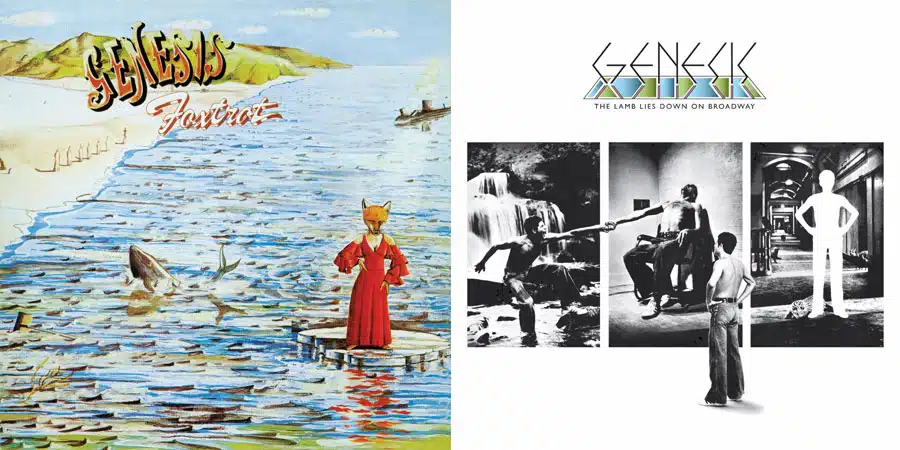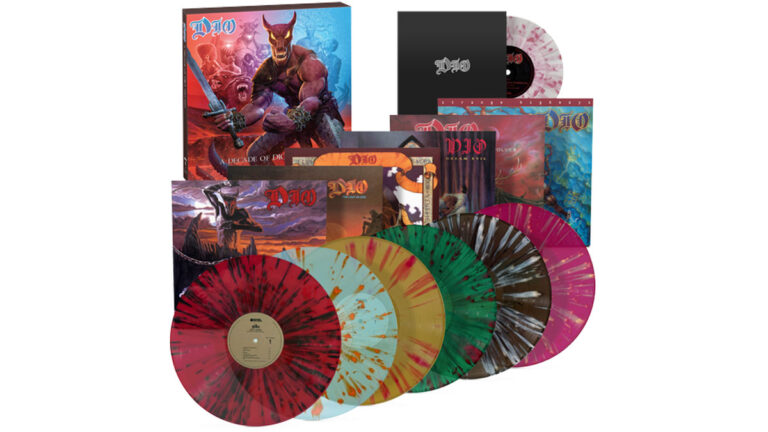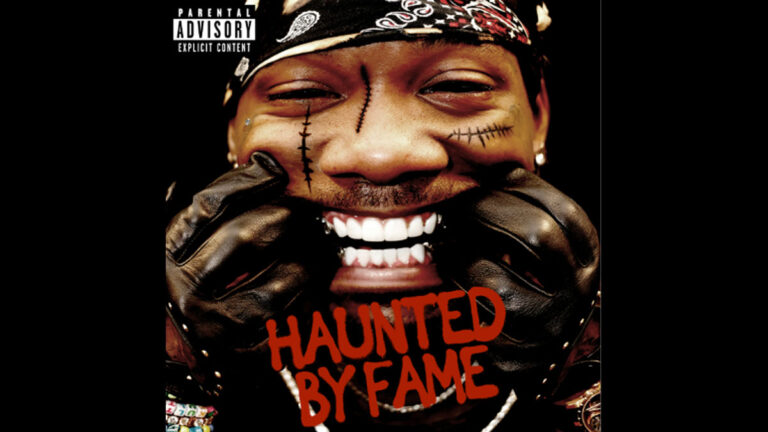The albums will arrive in three waves starting this summer
This summer, 13 Genesis studio albums released between 1971 and 1997 will be reissued on vinyl worldwide.
Pressed on 180-gram vinyl, the reissues—featuring Nick Davis mixed and remastered versions—will be available in three waves. They begin on August 23rd with Foxtrot, The Lamb Lies Down On Broadway (2 LP), Duke, Abacab, and Genesis. On September 6th, Nursery Cryme, Selling England By The Pound, Wind & Wuthering, We Can’t Dance (2 LP), and Calling All Stations (2 LP) will be released. The series concludes on September 27th with A Trick Of The Tail, …And Then There Were Three…, and Invisible Touch.
The albums follow the Rock and Roll Hall of Famers’ journey to become one of the best-selling bands in the world. Formed in 1967 by school friends Peter Gabriel, Tony Banks, Anthony Phillips, and Mike Rutherford, the band’s lineup solidified in the early ’70s with the addition of drummer Phil Collins and guitarist Steve Hackett. They established themselves as prog-rock innovators with albums like Selling England by the Pound (1973).
After Gabriel’s departure in 1975, Collins took over as frontman, and by the late ’70s, the band had transformed into a pop-oriented trio, scoring hits with “Follow You Follow Me” and “Misunderstanding” from …And Then There Were Three… (1978) and Duke (1980).
Each member pursued successful solo careers in the ’80s while Genesis dominated international charts with six platinum and multi-platinum albums, including Abacab, Genesis, and Invisible Touch. In 1991, We Can’t Dance marked Collins’ final studio album with the band. Banks and Rutherford returned in 1997 with singer Ray Wilson for Calling All Stations, the group’s final studio album.
Nursery Cryme (1971) featured the debut of Collins and Hackett and established the band’s signature sound with intricate musical passages and theatrical storytelling on “The Musical Box” and “The Return of the Giant Hogweed.”
Foxtrot (1972) remains a landmark in prog rock and includes the epic “Supper’s Ready,” a 23-minute suite showcasing Genesis’ ambitious compositional style and lyrical depth.
Selling England By The Pound (1973) is widely regarded as one of the band’s finest, combining lyrics about English life with complex, melodic instrumentation on songs like “Dancing With The Moonlit Knight” and “Firth Of Fifth” with its iconic piano introduction.
The Lamb Lies Down On Broadway (1974) is a double concept album that tells the surreal story of Rael using elaborate sounds and lyrical imagery. It was Gabriel’s final album with Genesis and features experimental tracks like “In The Cage” and the haunting “Carpet Crawlers.”
A Trick Of The Tail (1976), the first with Collins on vocals, maintained the band’s progressive rock tradition with virtuosic playing on “Dancing On A Volcano” while highlighting its melodic sensibility on “Ripples” and “Entangled.”
Wind & Wuthering (1976), the last with Hackett, demonstrated the band’s ability to craft intricate, emotionally resonant songs like “Blood On The Rooftops” and “One For The Vine.”
...And Then There Were Three… (1978), the first album released as a trio, retained some progressive rock elements but marked a shift toward a more accessible sound. The single “Follow You Follow Me” became the band’s first major hit.
Duke (1980) offered an ambitious blend of prog rock and pop sensibilities on the hit singles “Duchess,” “Misunderstanding,” and “Turn It On Again.” It was the band’s first No. 1 album in the UK, reaching No. 11 in America.
Abacab (1981) marked a significant stylistic shift as Genesis embraced a more radio-friendly sound and leaner production. It yielded three Top 40 hits in the US with “Abacab,” “Man On The Corner,” and “No Reply At All,” which featured the horn section from Earth, Wind & Fire.
Genesis (1983) captured the group’s evolving sound, mixing pop and rock with darker themes on singles like “Mama,” “That’s All,” and “Taking It All Too Hard.” The album reached No. 1 in the UK and was certified 4x platinum in the US.
Invisible Touch (1986) was Genesis’ most commercially successful album, peaking at No. 4 in America, and certified six-times platinum. The title track was a No. 1 hit in the US, while “In Too Deep,” “Land Of Confusion,” and “Tonight, Tonight, Tonight” were all Top 5 hits.
We Can’t Dance (1991), the final album with Collins, ended an era for the band on a high note, becoming Genesis’ fifth consecutive No. 1 album in the UK and being certified four-times platinum in America. The hits continued with “No Son Of Mine,” “Hold On My Heart,” and the Grammy-Award nominated “I Can’t Dance.”
Calling All Stations (1997), Genesis’ only album with singer Ray Wilson, explored a darker, more atmospheric direction. The album’s standout tracks include “Congo,” “Shipwrecked,” and the title track.
Genesis’ generation-spanning catalog includes 15 studio albums, six live LPs, and dozens of charting singles. In addition to its 2010 induction into the Rock and Roll Hall of Fame, the band has received a coveted Ivor Novello Award, a Grammy, an American Music Award, and the inaugural Lifetime Achievement Award at Britain’s Progressive Music Awards.





